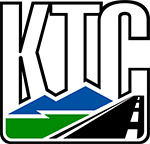
Policy, Finance, & Economics
A persistent challenge to federal, state, and local government agencies is identifying economically viable methods to finance new infrastructure projects while maintaining the operation and functionality of existing roads, highways, and bridges. With shrinking transportation budgets, it is imperative for these agencies to stretch their dollars and maximize returns on investment. KTC’s Economics, Finance, and Policy research group has worked with the Kentucky Transportation Cabinet (KYTC) and the Southeast Transportation Consortium as well as federal agencies, such as the Federal Highway Administration and the United States Department of Transportation, to understand the economic implications of policy proposals and emerging technologies, conduct financial data analysis, and examine legislative initiatives. Key research topics include a proof of concept for an online version of an Engineering Policy Guide for KYTC, legislation and policies related to autonomous vehicles, knowledge management, cost-benefit analysis, and initial project estimates.
Policy, Finance, & Economics – News & Research

Developing Knowledge Management Strategies
Retirement and attrition in many public agencies leads to the loss of institutional knowledge and skilled personnel. KTC explored strategies used at other organizations with the aim of understanding how core knowledge is retained. The team developed a survey for KYTC to better understand how employees find and use information and identified several potential knowledge management strategies. One of these, updating guidance manuals, led to the development of a proof of concept for an Engineering Policy Guide.
Initial Project Estimates for Design, Right of Way, Utilities, and Construction
The Kentucky Transportation Cabinet (KYTC) currently uses a variety of methods to develop initial project estimates for design, right of way, utilities, and construction. This often results in inconsistent and inaccurate budgeting estimates. There is a need to develop uniformity among the various methods used to develop initial estimates and a desire to enhance the current estimating tools for all parties involved. This project will identify current methods and develop a uniform approach for project estimates.
Policy, Finance & Economics
Bryan Gibson
Gayle Marks
Candice Wallace

Synthesis of Public-Private Partnerships: Potential Issues and Best Practices for Program and Project Implementation and Administration
In a time of shrinking budgets and increased demand for infrastructure, public-private partnerships (P3s) provide another option for financing and developing transportation projects. P3s involve collaborations between the public and private sectors to finance, develop, and/or maintain transportation infrastructure. KTC examined case studies that illustrate the benefits and drawbacks of P3 agreements, studied the performance of P3 involvement in past transportation projects, and produced a list of factors that policymakers should consider as they deliberate on whether a P3 is the best procurement option for specific projects.
Analysis of Autonomous Vehicle Policies
The rapid development and adoption of connected and autonomous vehicles will transform the U.S. transportation system over the next 30 years. Although the widespread use of fully connected and autonomous vehicles is still several years away, it is nonetheless critical that legislators, policymakers, and regulators understand how the presence of these vehicles will restructure the operation of roadway networks. KTC examined recent efforts at the federal and state level to establish laws and regulations that will smooth the transition for regulation of autonomous and connected vehicles. In particular, they looked at issues pertaining to licensing, registration, cell phone usage, and the definition of vehicle operator. A review of the Kentucky Revised Statutes and Kentucky Administrative Regulations identified current policies and regulations that may apply to – or conflict with – connected and autonomous vehicles in Kentucky.


